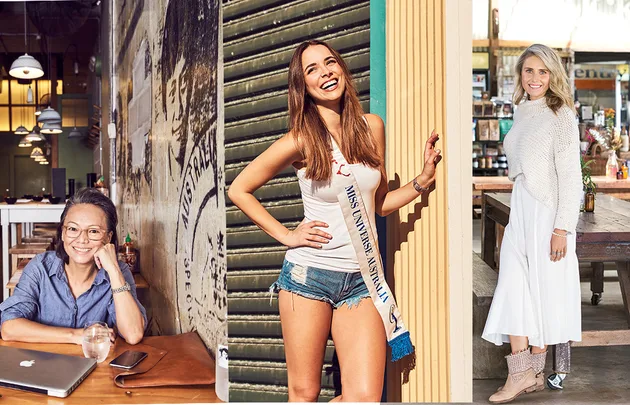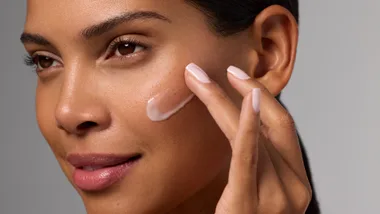Asylum seekers have been held in detention and used as political pawns, but they are more than just headlines.
To celebrate Refugee Week, here are the stories of three refugees who have not only survived but thrived in Australia – proving that together we can make our country a better place.
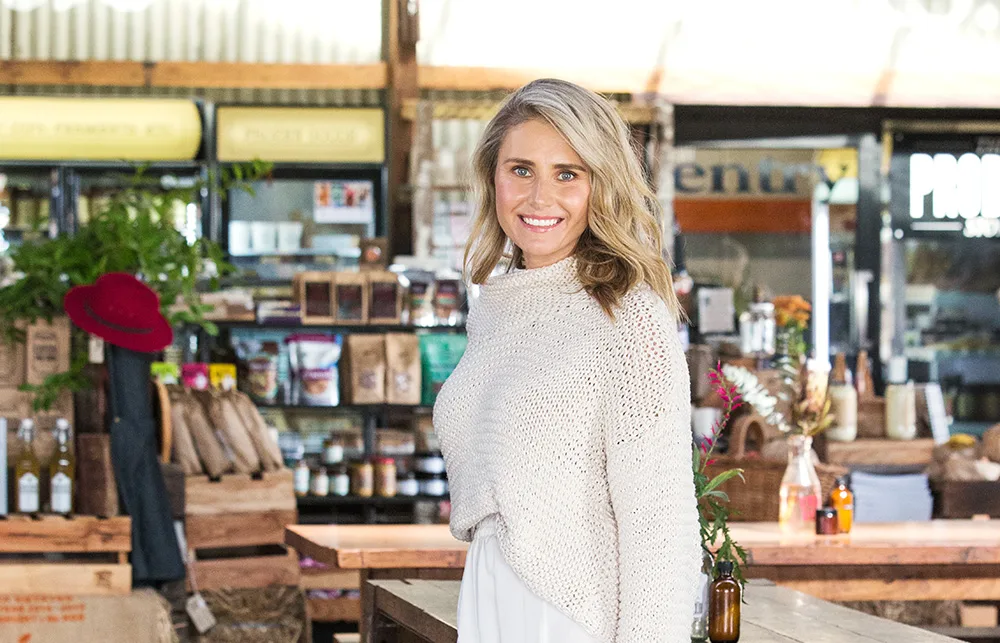
MAGDALENA ROZE, 34
TV presenter, food writer and meteorologist. In 1981, her parents fled Poland after martial law was imposed.
“People are always surprised to learn I am a refugee. With my blonde hair and blue eyes, I don’t fit the stereotypical image portrayed in the media and by politicians.
“I can’t imagine being in my parents’ shoes. They fled Poland when my mum was pregnant with me [Magdalena was born in a refugee camp in Austria, then the family moved to Australia when she was six weeks old and spent 10 months in Villawood Immigration Detention Centre] and left everything – including their farm – behind.
“Conditions were so oppressive, they had no choice. They arrived in Australia with no language skills and no money. St Vincent de Paul gave us furniture and clothing, and Mum and Dad always told us how grateful they were that Australia helped them.
“I think one of the major reasons we’ve been able to prosper is because we’ve had that great balance of maintaining our Polish heritage, but also being proud and passionate Australians. I recall one Australia Day, Mum and Dad put an Australian flag out the front and invited some tradies who were working on our house to stay for a barbecue. They were blown away by my dad’s generosity.”
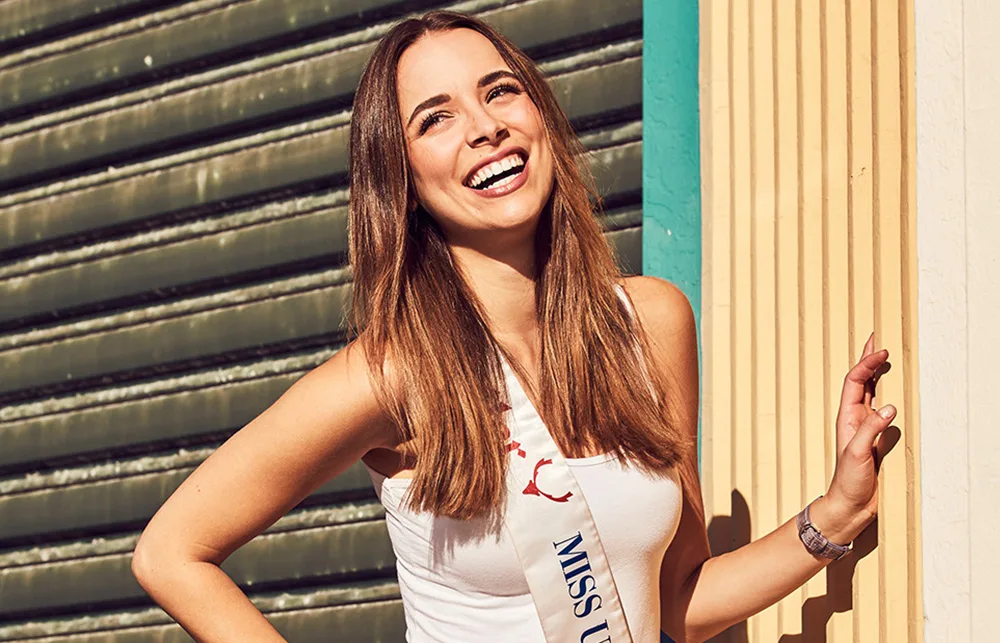
MONIKA RADULOVIC, 25
Has an honours degree in psychology and is Miss Universe Australia 2015. She and her family fled Bosnia in 1991.
“My parents, who were both professionals, fled Bosnia with me before the war broke out.
“We boarded a boat for Denmark and spent the next four years living in a tiny room in a dingy hotel, before being sponsored to come to Australia. We arrived with nothing and none of us could speak English, but my dad adapted quickly.
“I grew up in Hurstville in Sydney, which is a multicultural area so I never really experienced racism, but I was aware of our struggles – we lived in a unit while I dreamt of a house, a backyard and a dog.
“Throughout my life, my parents have drilled in me that education is freedom, so I worked hard and got my degree in psychology.
“I became a model after being approached at school, and in 2015 had the honour of representing Australia in the Miss Universe pageant. Other entrants were often shocked to hear I was originally from Bosnia, but it was nice to explain how multicultural Australia is.
“I am so extremely proud that a refugee has taken out the title of Miss Universe Australia. It demonstrates Australia’s capacity to be compassionate and kind to those in need. I have been offered safety and freedom.
Everyone deserves that!”
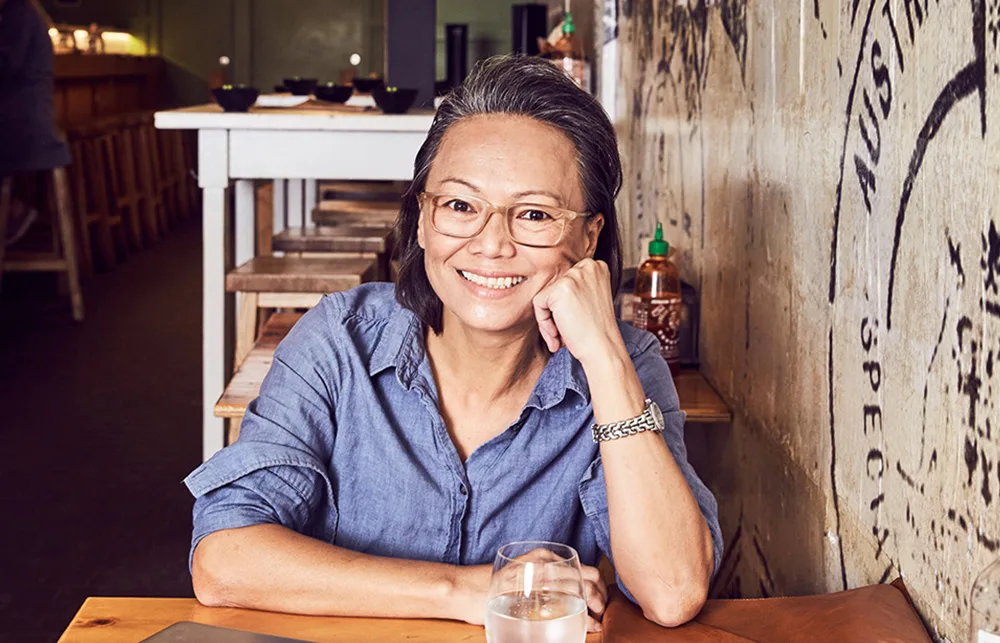
NAHJI CHU, 46
Founder of restaurant chain MissChu. Her family were some of the first Vietnamese/Laotian refugees to settle in Australia.
“I spent my early childhood in a jungle village that was overrun by the [communist] Pathet Lao regime.
“We were forced to flee – Mum left first with four of my siblings, then Dad smuggled me and my brother out on a fishing boat.
“It was 1975 and I was five. After being thrown into jail for a few months, we were transferred to a squalid refugee camp in Thailand. One time I witnessed people being gunned down by drunken officials. We lived there for three years before going to Australia.
“We arrived with nothing – none of us spoke English. My parents worked in a chicken farm, a brewery and a condom factory.
“At school I was called names, spat on and kicked. Growing up, I felt my life was about proving I was worthy. I tried being a photographer, a journalist, an actor.
“But in the end I thought, ‘Nahji, you’re Vietnamese – just sell rice paper rolls!’ Turns out that I made the right choice.
“After establishing MissChu, within months I got my first order for 20,000 rolls. I succeeded because I was given a gift courtesy of my background: resilience and strength.
“What refugees bring to the table is diversity – it strengthens a society’s make-up. I’d like to see our government use more cost-effective and humane ways to house refugees with a much quicker turnaround. They will be so grateful and give so much more back!”
To read more stories of inspirational women who challenged stereotype of a refugee, pick up the latest issue of marie claire.
